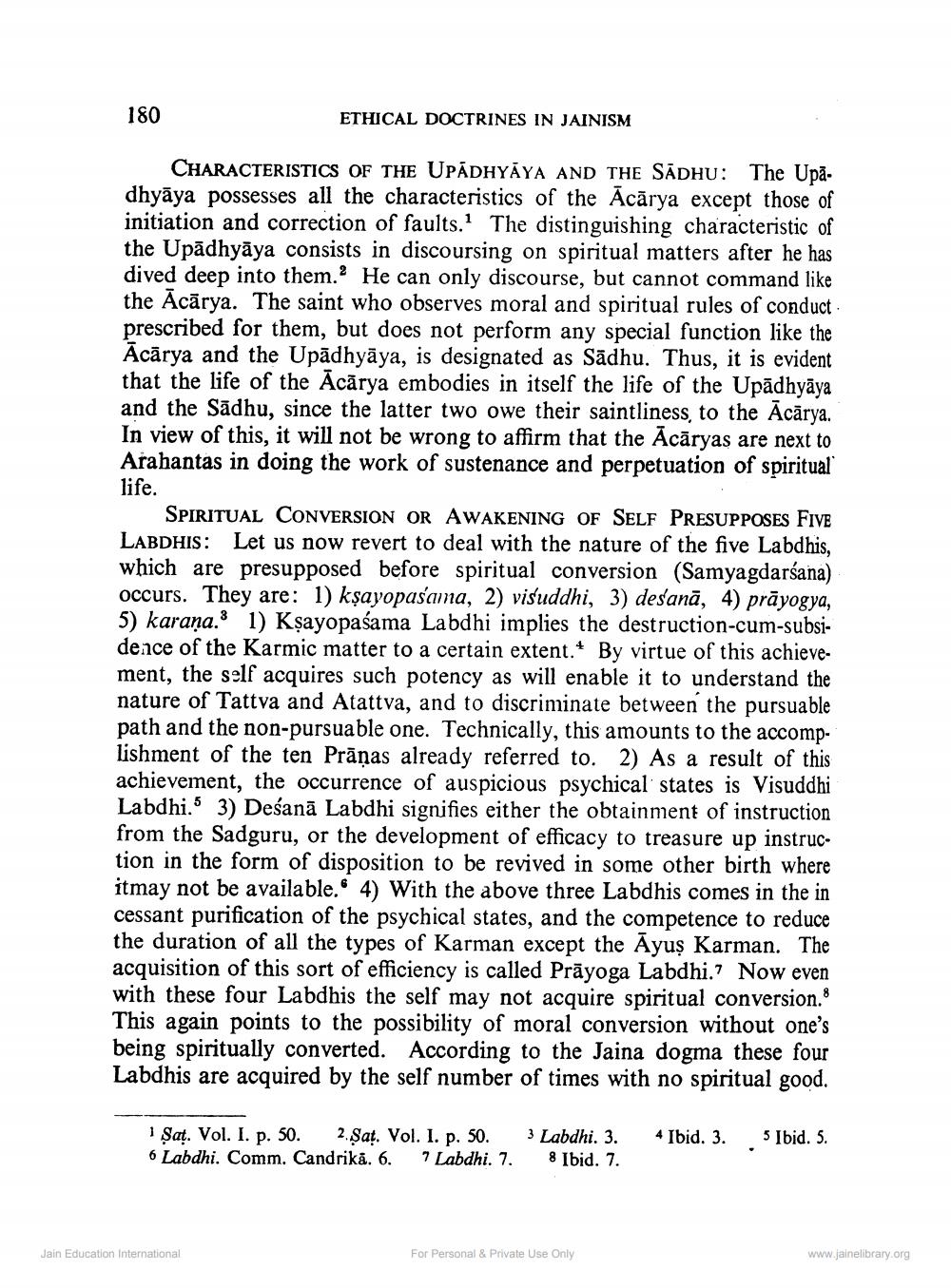________________
180
ETHICAL DOCTRINES IN JAINISM
CHARACTERISTICS OF THE UPADHYAYA AND THE SĀDHU: The Upā. dhyāya possesses all the characteristics of the Acārya except those of initiation and correction of faults. The distinguishing characteristic of the Upādhyāya consists in discoursing on spiritual matters after he has dived deep into them. He can only discourse, but cannot command like the Ācārya. The saint who observes moral and spiritual rules of conduct prescribed for them, but does not perform any special function like the Ācārya and the Upādhyāya, is designated as Sādhu. Thus, it is evident that the life of the Acārya embodies in itself the life of the Upādhyāya and the Sādhu, since the latter two owe their saintliness, to the Ācārya. In view of this, it will not be wrong to affirm that the Acāryas are next to Arahantas in doing the work of sustenance and perpetuation of spiritual life.
SPIRITUAL CONVERSION OR AWAKENING OF SELF PRESUPPOSES FIVE LABDHIS: Let us now revert to deal with the nature of the five Labdhis, which are presupposed before spiritual conversion (Samyagdarśana) occurs. They are: 1) kşayopasama, 2) visuddhi, 3) desanā, 4) prāyogya, 5) karaņa. 1) Kşayopaśama Labdhi implies the destruction-cum-subsidence of the Karmic matter to a certain extent.* By virtue of this achievement, the self acquires such potency as will enable it to understand the nature of Tattva and Atattva, and to discriminate between the pursuable path and the non-pursuable one. Technically, this amounts to the accomplishment of the ten Prāņas already referred to. 2) As a result of this achievement, the occurrence of auspicious psychical states is Visuddhi Labdhi.“ 3) Dešanā Labdhi signifies either the obtainment of instruction from the Sadguru, or the development of efficacy to treasure up instruction in the form of disposition to be revived in some other birth where itmay not be available. 4) With the above three Labdhis comes in the in cessant purification of the psychical states, and the competence to reduce the duration of all the types of Karman except the Ayus Karman. The acquisition of this sort of efficiency is called Prāyoga Labdhi.? Now even with these four Labdhis the self may not acquire spiritual conversion. This again points to the possibility of moral conversion without one's being spiritually converted. According to the Jaina dogma these four Labdhis are acquired by the self number of times with no spiritual good.
Ibid. 3.
Ibid. 5.
1 Sat. Vol. I. p. 50. 2. Sat. Vol. I. p. 50. 6 Labdhi. Comm. Candrikå. 6. 7 Labdhi. 7.
3 Labdhi. 3.
8 Ibid. 7.
Jain Education International
For Personal & Private Use Only
www.jainelibrary.org




